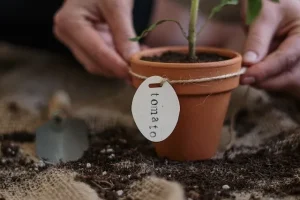When my family and I first moved to Australia, one of our biggest challenges was figuring out how to stretch our money, especially when it came to groceries. Saving money on groceries quickly became a priority, as we were determined to build an emergency fund and eventually save for a house deposit. Like many families, we found it a bit tricky at first. But over time, we got into a routine, and those small savings began to add up. If you’re also looking to cut costs without sacrificing quality, here are the 12 best ways we’ve found to save money on groceries—tips that could help you stay within budget while still feeding your family well.
1. We Create a Budget
The first thing we did to save money on groceries was create a realistic budget. This was critical for us because, without a set spending limit, it’s easy to go overboard. Every fortnight, when my husband gets his paycheck, we allocate a specific amount for groceries. We agreed that this was the limit, and if we wanted to buy something outside of our list or budget, we had to discuss whether we truly needed it. Asking ourselves, “Is this a need or a want?” helped us make better decisions.
2. We Make a List of What to Buy

This might seem simple, but it’s a huge game changer. Before heading to the store, we always check our fridge and pantry, making a list of what we need. Going shopping with a list helps us stay focused on the essentials and prevents those impulsive purchases that can easily add up. Plus, it makes our grocery trips faster, which is always a bonus!
3. We Shop at Aldi
After discovering Aldi, we never looked back. We quickly realized how much cheaper Aldi’s prices were compared to other supermarkets like Woolworths and Coles. At first, we just bought a few staples, but after finding that Aldi’s quality was just as good, we started purchasing more items there. Our grocery bill dropped significantly, and we were able to stay well within our budget. Aldi’s home brand products are reliable, and the savings are undeniable.
4. We Check for Specials
Although Aldi is our go-to, we still check for specials at Woolworths and Coles using the Half Price app. If something we need is on sale for half the price, we’ll grab it from there. By comparing prices and mixing our shopping between Aldi and these deals at other stores, we make sure we’re getting the best of both worlds. This small effort leads to big savings over time.
5. We Buy Meat at the Butcher
Buying meat from our local butcher has been a fantastic way to save money. Not only is it cheaper, but we can also buy in bulk, which stretches our dollar even further. Plus, the meat is fresher, and we have the option to buy larger cuts that we can trim at home. It feels more personalized and, in many cases, better quality than what’s pre-packaged at larger supermarkets. Being able to choose the exact amount we need without paying for excess packaging is another win.
6. We Buy in Bulk
When an item is on special or if it’s something we use regularly, we buy in bulk. This way, we avoid frequent trips to the store and the temptation to overspend. For items with a long shelf life, like rice, pasta, or cleaning products, buying in larger quantities saves us from having to pay full price down the road. We also stock up on frozen foods when they go on sale, ensuring our meals are always planned and our budget stays intact.
7. We Plan Our Meals
Meal planning has become an essential part of our routine. Each Sunday, we sit down and plan out meals for the week. This prevents us from having to make unplanned trips to the grocery store or resort to expensive take-out. It also helps us avoid wasting food because we only buy what we need for the meals we’ve already planned. Additionally, meal prepping in bulk on Sundays saves us time and energy throughout the week, giving us ready-made dinners and lunches to bring to work.
8. We Buy Seasonal Produce
Seasonal produce is often cheaper and fresher than out-of-season items, so we make a point of buying fruits and vegetables that are in season. Not only does this help us save money, but it also ensures that we’re eating more nutritious and flavorful meals. For example, in the summer, we stock up on berries and tomatoes, while in winter, we enjoy more root vegetables like potatoes and carrots. Adjusting our meal plans to include seasonal produce keeps costs down and allows us to get creative in the kitchen.
9. We Make Meals from Scratch
Cooking meals from scratch has been a huge money saver for us. While it might take a bit more time, the benefits are worth it. Pre-made meals or takeout can be convenient, but they’re also much more expensive. By cooking at home, we not only save money, but we also get to enjoy meals that remind us of the traditional foods from our home country. It’s a way for us to stay connected to our roots while introducing our daughter to our favorite family recipes.
10. We Avoid Pre-Packaged Items
Pre-packaged fruits, vegetables, and meats might seem convenient, but they come at a premium price. We’ve learned that buying whole foods and preparing them ourselves saves a significant amount of money. Cutting our own vegetables and portioning our own meats may take a little extra effort, but the savings are worth it. Plus, it gives us control over the portion sizes, reducing food waste.
11. We Grow Our Own Vegetables

One of my husband’s passions is gardening, and growing our own vegetables has been both enjoyable and cost-effective. We have a small backyard garden where we grow tomatoes, zucchini, cucumbers, and a variety of herbs like rosemary, basil, and mint. It’s so convenient to just step outside and grab fresh herbs or vegetables when we need them. Not only does it save money, but it also adds a sense of accomplishment to our meals, knowing we grew some of the ingredients ourselves.
12. We Eat Leftovers
Lastly, we make sure to eat our leftovers. Wasting food is something we try to avoid at all costs, not just because it saves money, but also because it feels wrong, knowing that many people don’t have enough to eat. By planning our meals carefully, we often have enough for lunch the next day or even for another dinner. It’s a simple way to stretch our food budget and avoid unnecessary waste.
These are the strategies that have worked best for our family when it comes to saving money on groceries. Since moving to Australia, we’ve had to adapt and find ways to make every dollar count, and focusing on groceries has been a great way to do that. In a time when inflation is making everything more expensive, being mindful of how and where we spend our money has become more important than ever.
I hope these tips will help you, too, in your quest to save money on groceries. Whether you’re trying to save for a big goal like buying a house or just want to keep your budget in check, these small changes can make a big difference over time. Happy saving!


